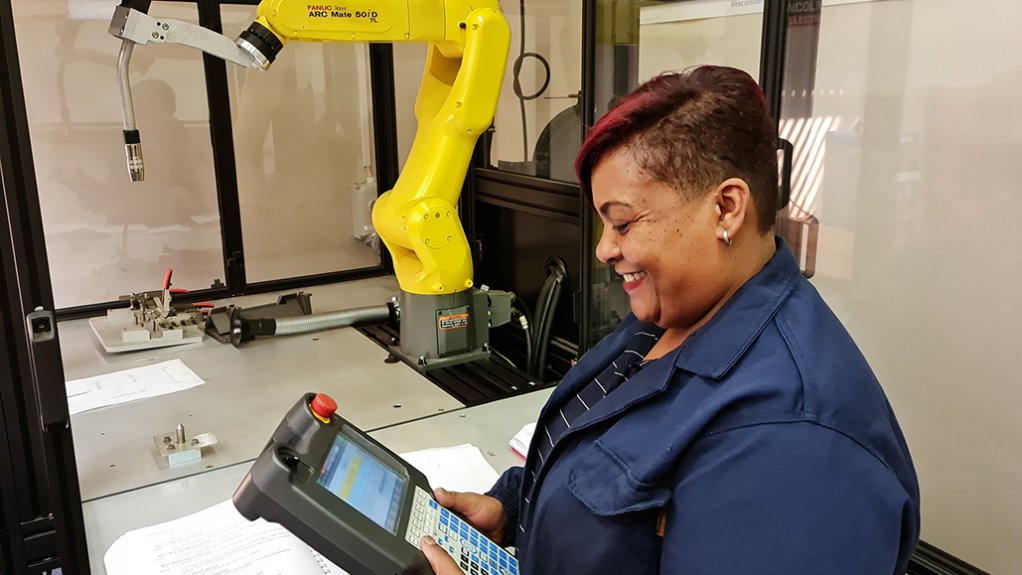Despite a low number of women working in the welding and related processes sector locally, the Southern African Institute of Welding (SAIW) says its members have seen more detail-oriented work, as well as high-quality consistency, from women, or female employees.
SAIW executive director John Tarboton says the number of women working as welders, compared with that of men globally is low, while the number of women working as welding inspectors, welding supervisors and non-destructive testing (NDT) inspectors has increased.
Women are more detail-orientated, particularly in the inspection environment and managerial aspects, SAIW CEO and qualification and certification manager Herman Potgieter points out.
Tarboton points to an Eastern Cape fabricator that mostly uses women welders, as the fabricator has found that women can produce a better-quality weld more consistently over time, with more attention to detail.
The company also noted that women inspectors can concentrate consistently and record defects for longer, whereas it had to retrain male inspectors more often to ensure that they adhered to the required standard, compared with their female counterparts, he adds.
When conducting audits in areas that are managed by women employees, the work is often in order, done efficiently and done well overall.
With audits, establishing a paper trail and keeping documentation in order and correct are important, which women have been able to do, Potgieter adds.
Meanwhile, the SAIW continues to educate young women on the various aspects and opportunities available to them in the welding sector.
“We continue to address and create awareness through our social media platforms and marketing to matric students. We have also offered women bursaries and featured these successful bursary students on our social media pages,” says Tarboton.
The bursaries are also offered to women applying for training programmes to assist successful applicants in gaining the skills required to work in the welding sector, says SAIW NDT training manager Mark Digby.
He concludes that the institute’s bursaries serve as incentives to help people with fewer advantages to jumpstart their careers, which allows for self-development, improved quality of life and their contributing to the economy.
Edited by: Zandile Mavuso
Creamer Media Senior Deputy Editor: Features
EMAIL THIS ARTICLE SAVE THIS ARTICLE
ARTICLE ENQUIRY
To subscribe email subscriptions@creamermedia.co.za or click here
To advertise email advertising@creamermedia.co.za or click here













